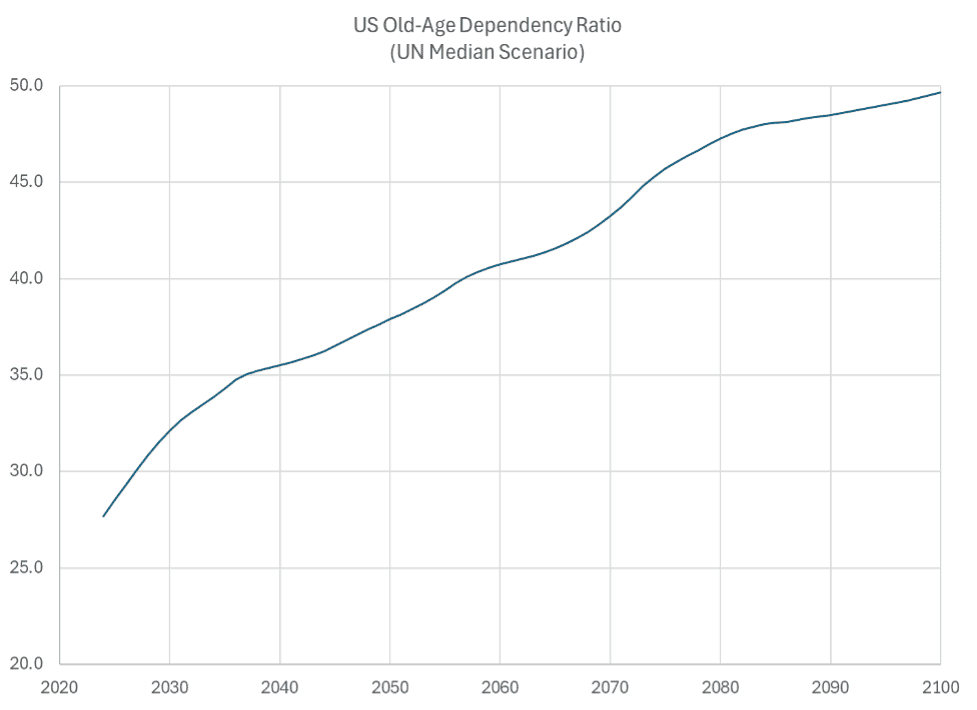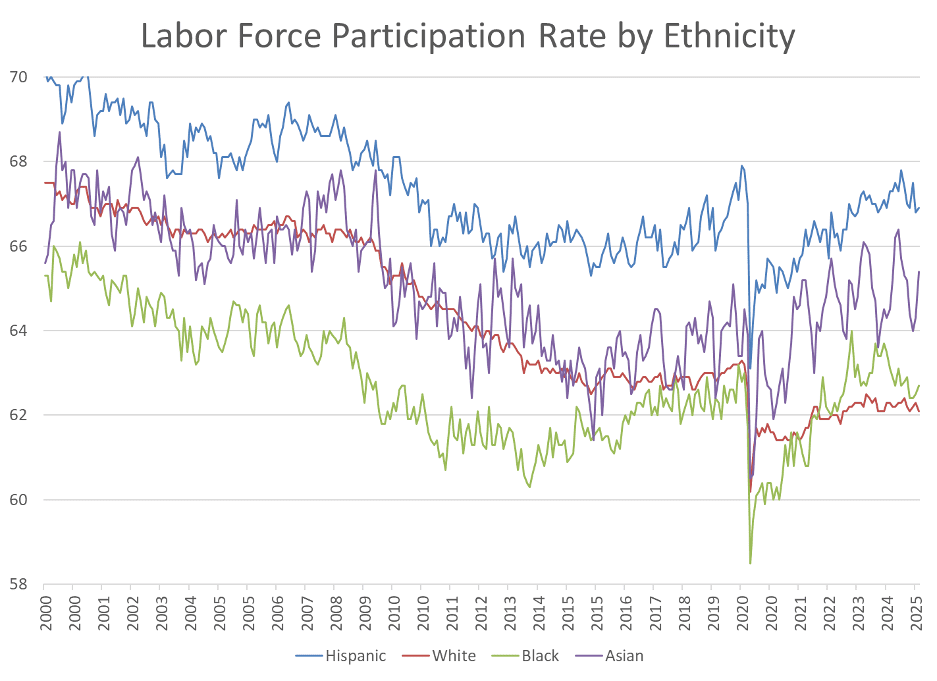Prof. Hankins’s plan has merit, but we should err on the side of caution.
The United States needs immigrants. Americans aged 65 or older will nearly double to about 50% of the population from today’s 27% due to declining fertility and rising longevity. The dire warnings we hear about the Social Security and Medicare systems will come true with a vengeance. Immigration, to be sure, is not the only remedy for our demographic problems—we can incentivize child-raising and extend the average working life—but it is an indispensable one. Working-age adult immigrants who pay into the Social Security and Medicare trust funds help keep these systems solvent.

The fall in America’s fertility rate stems from cultural and religious shifts that cannot be undone quickly. In a January 10, 2022 contribution to The American Mind, I reviewed the statistical evidence that the decline in our fertility can be explained by the attenuation of religion in the United States.
A sudden surge of immigrants will drive down wages for American workers, but a steady stream in line with the increase in demand for labor will not. The question should be: What is in the best interest of Americans who were born here, or previously came here legally? Competition from new immigrants might suppress their pay, but they benefit from immigrants who will contribute to Social Security and Medicare.
Suppose the United States allows the eight million illegal immigrants who arrived under the Biden Administration to work legally? One could argue that most of them already are working illegally, so the impact on wages would be limited to the shifts from informal employment (for example, gardening) to formal employment (for example, manufacturing or health services).
Prof. Hankins wants more Republican voters. So do I. But our starting points should be the well-being of the economy and the population, as well as the rule of law. Broadly speaking, I agree with the spirit of his proposal, but a more limited and more conditional approach would be better.
Illegal immigrants committed a crime by entering the United States and should not be rewarded for it. Hankins is right to offer work permits to illegals who have no criminal record and a good work history, but they should be required to confess to having committed a crime and pay a fine of a meaningful amount in return for the equivalent of a pardon. There should also be annual quotas for illegals offered such amnesty to mitigate any negative impact on the wage scale of legal workers.
With these caveats, it is worth noting that Hispanics work hard. Over six-and-a-half million of the eight million illegal entrants into the United States during the Biden Administration came from the southwest border, and the great majority are Hispanic. According to the Bureau of Labor Statistics, the labor force participation rate of Hispanics is the highest among all ethnic groups. Non-Hispanic whites and blacks show an LFPR of 62%, Asians 65%, and Hispanics 67%.

Hispanics on average have fewer years of education than other ethnic groups, but by some measures their educational standing is improving. Between 1996 and 2010, the graduation rate of Hispanic men at four-year universities rose from 40% to 50%, while the black male graduation rate remained around 35%. Asian men had the highest graduation rate at 70%, up from 60% in 1996. The Hispanic graduation rate fell in 2020 and 2021, the last years for which data are available, but that appears to be the result of the COVID epidemic.
Harsh treatment is justified for those who commit a crime by entering or remaining in the U.S. illegally and then commit additional crimes. But legal Hispanic immigrants are hard-working and upwardly mobile, and we should be glad to have them in manageable numbers.

We will never get this balance exactly right. We do not know just how many illegal workers we can amnesty without putting pressure on the wages of illegal workers, and the resentment of legal workers against the flood of illegals—including the more than 50% of Hispanic men who voted for Donald Trump in 2024—is justified. Because our first obligation is to the people who legally inhabit this country, we should err on the side of caution, offering a limited quota of amnestied positions. At the same time, more immigration is in the interest of the existing population, which is hard put to fund its retirement and old-age medical care.
The American Mind presents a range of perspectives. Views are writers’ own and do not necessarily represent those of The Claremont Institute.
The American Mind is a publication of the Claremont Institute, a non-profit 501(c)(3) organization, dedicated to restoring the principles of the American Founding to their rightful, preeminent authority in our national life. Interested in supporting our work? Gifts to the Claremont Institute are tax-deductible.

















